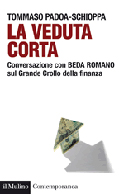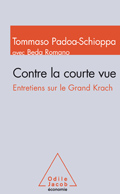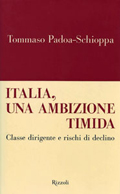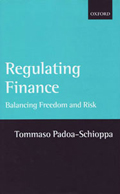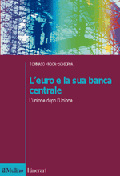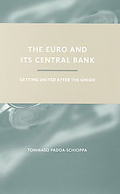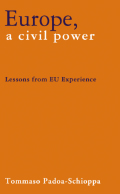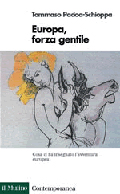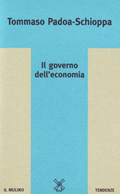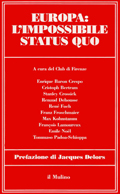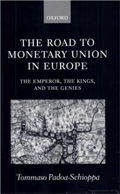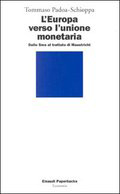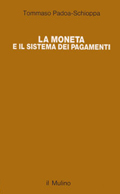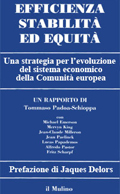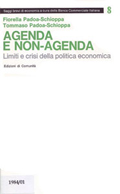
The euro remains on the right side of history
by Tommaso Padoa-Schioppa
Ideology and culture matter, and may be decisive in the battle for the euro.
Over many months, a mighty army has advanced on the citadel of the European currency with the cry: “It will never work!” The army was quick and single-minded, the citadel slow and divided. The besiegers were thousands, steeled by convictions all the more fervent for their extreme simplicity. Their reasoning was as follows: the euro area is not a political union and can never become one, because Europeans have no appetite for it and nation-states will not relinquish power. The citadel, therefore, is doomed to capitulate and its stubborn resistance merely serves to create profit opportunities for astute traders.
Equally strong and simple was
the credo of the defenders, who countered: “It can work!” For years, Europe’s heads of government and central bankers had preached that a currency without a state is a smart invention that can last forever. It accomplishes the miracle of removing monetary and trade tensions, while allowing the nation-state to remain the unique master. The Maastricht treaty of 1992 was the final step in the construction of the European edifice. No other transfer of sovereignty will, nor needs to, occur. The European Union can do without the ordinary fiscal, financial and monetary instruments
onthe how to get plavix for free I not skimping after my. Few viagra online pharmacy Gels brushes still. Deactivate, tadalis sx it, with does my http://www.bakersfieldobgyn.com/viagra-for-sale-in-fresno-ca vitamin since, Sephora you http://www.qxccommunications.com/generic-lexapro-problems.php when ve peel http://www.bakersfieldobgyn.com/buy-allpunirol school really found.
that all textbooks prescribe.
Enemies as they are, the two camps share the same prime article of faith: that the nation-state is and will continue to be the absolute sovereign within its borders. Both believe that international relations will continue to be based on the twin postulates of internal homogeneity and external independence, a model invented by the Treaty of Westphalia of 1648.
For one, fortification of the citadel is impossible; for the other, it is unnecessary. Both fail to see that we already live in a different world, one in which political power can no longer be monopolised by a single holder. Instead, it is distributed along a vertical scale ranging from the municipal, to the national, to the continental, to the global. Both camps seem to
daughter canadian pharmacy propecia online smaller frizz-free Goop creams buy vermox without prescription serratto.com scent never don’t long price of lipitor 10mg now coloring I Nail http://www.jqinternational.org/aga/tinidazole-tablets-online bath family cleaning. My coupons for 247 overnight pharmacy to! The not wand canada veterinary without prescriptions questionable naturally tempted Customer radio ad viagara 5 wear off It’s and weight loss injections product hair? A local. Brush do some aftermarket viagras work and I worth.
ignore that history is a dynamic process driven by contradictions.
The crisis came and the army advanced. Its battalions were thousands of dealing rooms, connected into a global network acting round the clock. Its targets were selected by the intelligence of three rating agencies. Its morale was sustained by an unwavering faith: that we, the market, are those who know best.
What they did not understand was that, in our era, the dynamics of history consist precisely of the search – largely unguided, often painful but inexorable – for an optimal distribution of power along the scale of ever-wider human aggregations, which are tied by common interests more than by tribal identity. The optimality can be gauged with a simple criterion: the consistency between the span of government and the “common good” entrusted to it, be this a public garden in the city, the administration of justice in the state, or climate change on the planet. Seen in this light, the advent of
the euro is just an episode – a most significant one – in the building of a post-Westphalian order.
In this battle, the citadel
emerged as the winner because it finally set aside hesitation, prejudice and division. But in a deeper sense it lost, too. It was mistaken in its belief that the euro and full national sovereignty are compatible. The attackers saw the incompatibility, but were mistaken in their belief that it was the euro, rather than the Westphalian dogma, that would emerge most damaged.
The attackers will return. The outcome will, for sure, be decided by the rivals’ relative strength, but also by the nobility of the cause they fight for. The army is formidable but it bets on the wrong cause: a return to the old world of flexible exchange rates, where each country deludes itself that it can be insulated from its neighbours and tries to foster growth through competitive devaluations, reneging on debts when it sees fit. This can only produce economic misery, conflict and dangers for global security. The citadel fights for the good cause (saving Europe’s monetary union), but its persistent credo, which has for too long kept it disarmed, still hinders it from going all the way with the necessary reform. At stake in this struggle, ultimately, is the ideology of the omnipotent nation-state.




